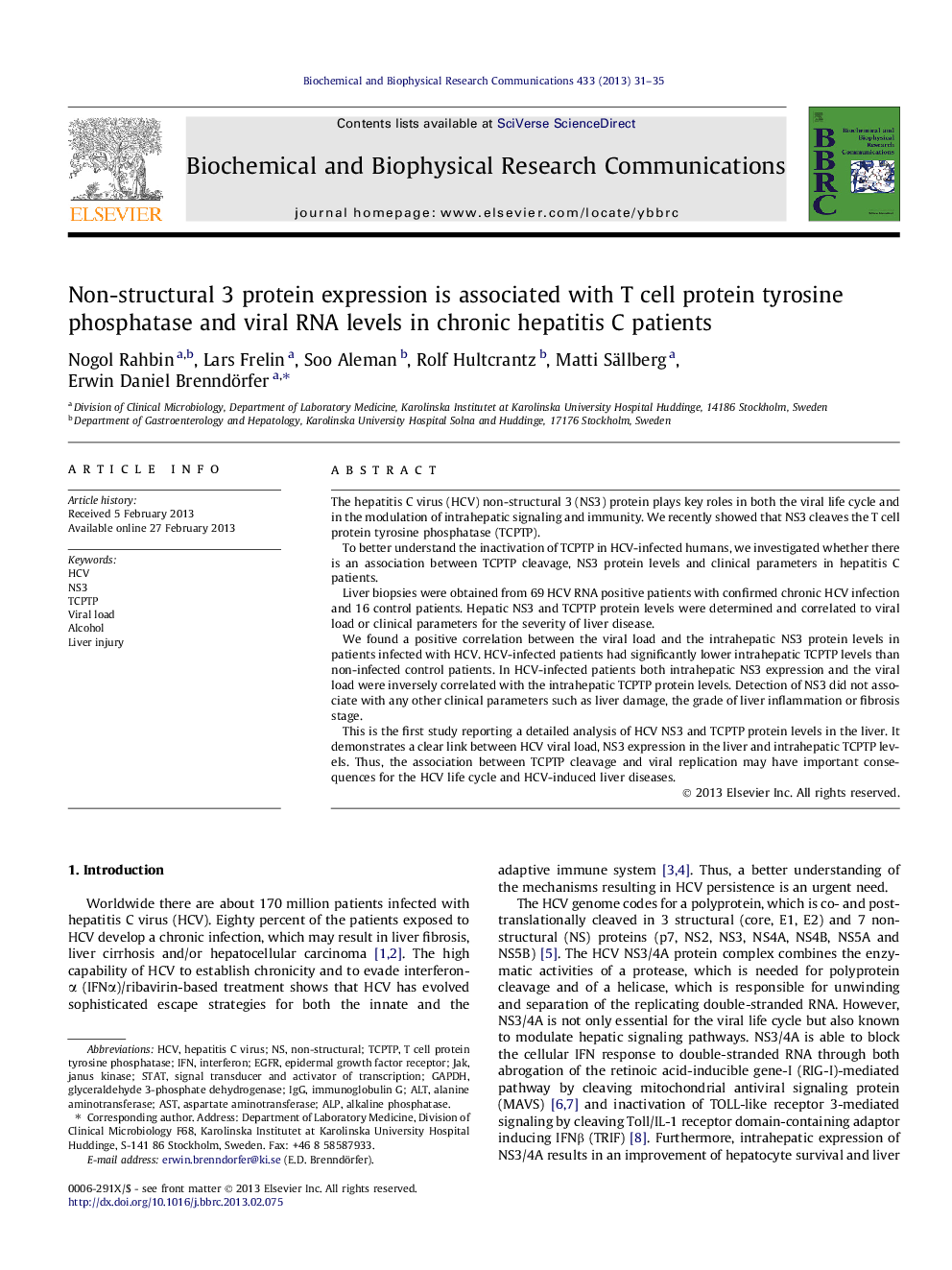| Article ID | Journal | Published Year | Pages | File Type |
|---|---|---|---|---|
| 1928756 | Biochemical and Biophysical Research Communications | 2013 | 5 Pages |
The hepatitis C virus (HCV) non-structural 3 (NS3) protein plays key roles in both the viral life cycle and in the modulation of intrahepatic signaling and immunity. We recently showed that NS3 cleaves the T cell protein tyrosine phosphatase (TCPTP).To better understand the inactivation of TCPTP in HCV-infected humans, we investigated whether there is an association between TCPTP cleavage, NS3 protein levels and clinical parameters in hepatitis C patients.Liver biopsies were obtained from 69 HCV RNA positive patients with confirmed chronic HCV infection and 16 control patients. Hepatic NS3 and TCPTP protein levels were determined and correlated to viral load or clinical parameters for the severity of liver disease.We found a positive correlation between the viral load and the intrahepatic NS3 protein levels in patients infected with HCV. HCV-infected patients had significantly lower intrahepatic TCPTP levels than non-infected control patients. In HCV-infected patients both intrahepatic NS3 expression and the viral load were inversely correlated with the intrahepatic TCPTP protein levels. Detection of NS3 did not associate with any other clinical parameters such as liver damage, the grade of liver inflammation or fibrosis stage.This is the first study reporting a detailed analysis of HCV NS3 and TCPTP protein levels in the liver. It demonstrates a clear link between HCV viral load, NS3 expression in the liver and intrahepatic TCPTP levels. Thus, the association between TCPTP cleavage and viral replication may have important consequences for the HCV life cycle and HCV-induced liver diseases.
► This is the first study thoroughly analyzing the HCV NS3 and TCPTP levels in the liver. ► The viral load and the intrahepatic NS3 protein levels are positively correlated. ► The levels of TCPTP are in chronic hepatitis C patients significantly decreased. ► NS3 expression and viral load are inversely correlated with the levels of TCPTP. ► TCPTP cleavage may be involved in the HCV life cycle and HCV-induced liver diseases.
